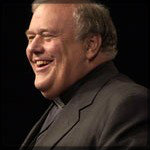 In current pop culture, decisions are often made without reference to consequences which will ultimately come as a result of the decision. There is a great deal of momentum to live "in the moment." While that may have a certain rainbow and roses appeal, it violates a core Biblical principle: Whatsoever you sow, you shall reap." Sadly, even unwanted and unforeseen consequences will come.
In current pop culture, decisions are often made without reference to consequences which will ultimately come as a result of the decision. There is a great deal of momentum to live "in the moment." While that may have a certain rainbow and roses appeal, it violates a core Biblical principle: Whatsoever you sow, you shall reap." Sadly, even unwanted and unforeseen consequences will come.
Along these same lines is another insidious wrong that the church has far too often embraced - the division between sacred and secular. The roots of Greek dualism describe life's tensions as "different spheres." The Gnostic heresy maintained that physical things were lesser than non-physical things. The extension of this attempted to ignore consequences of physical acts, emphasizing spiritual things, instead, as being important.
Many churches live with this type of dualism, choosing to emphasize "church related" things over "worldly" concerns. In doing so, the consequences which have been set in motion are not stayed, they are simply ignored. God, however, does not live with this division. He calls us to exercise stewardship over all of creation. When rightly functioning, the church does not diminish the proclamation of the Gospel of salvation, but neither does its message stop there. Of course we should want people to come into the knowledge of salvation through the saving love of Jesus Christ. We should also, however, disciple them in understanding the fullness of the Gospel of the Kingdom.
This doesn't have to mean that we try to set up a country that is a theocracy. Honoring God's call to us to exercise stewardship simply means that the church will not only help people come to know Christ, we will work to bring them to mature discipleship and then help identify where in culture they are called to deploy. It is not true that "ministry" is only for the ordained. Some churches take a step beyond this and seek to have more people deployed in carrying out the activities of the church by using "lay ministers." Of course, evangelism, Sunday school, and altar guild are noble pursuits, but there are more calls beyond the four walls of the church. God's plan is to deploy indelibly discipled Christians into every circle of human endeavor. Imagine the good from mature (or maturing!) disciples being deployed in government, the arts and entertainment, the military, health care, media, and business. Many different decisions could be taken.
In the early days of mission expansion in Kenya, there was a design that was used for the planting of a parish. First, there was a clear definition articulated of an area of responsibility. Then, a template was used to develop a bore hole for water, a school, a clinic, a farm, and a church. As the parish grew, its influence increased along with its stability.
Around the world, countless numbers of pastors and church leaders have focused on "the sacred," seeking to build up their local church to the exclusion of other issues. Many are not engaged in social issues or involved in areas because they have been dismissed as being "only temporal" and irrelevant to the local church's life and growth. This, sadly, has left us with a deficit of properly discipled leaders who are well equipped for the looming crises.
Financially, the consequences are coming to roost from churches, businesses, families, and governments using debt to finance spending. In many cases there is not even enough income anymore to pay the interest on debt-even with the interest rates hovering near zero. Not only are there no limits on new spending, the level of debt is rising to the point that it has become impossible to repay. "Unfunded liabilities" are commitments that have been made for which there is no plan or ability to pay. In just the US, the total of those debts including borrowed funds, promised retirement benefits and future spending commitments is likely between $70 trillion and $120 trillion. To put that in perspective, the total economic production of the entire world is about $160 trillion.
Economic realities are that the current debt (at whatever level you choose to place it) is mathematically impossible to repay. Politicians have continued to finance the situation with more and more debt, but that cannot go on much longer. Eventually, there are two possibilities: default (refusing to pay), or inflation where the debt is paid with new currency that is worth much less.
In any case, the church is going to need to re-think how we go about ministry. Right now, the Kenyan parish model looks really good! It is comprehensive and practical, covering multiple spheres of life. In your setting and situation, you might think about how the church should re-engage ministry in the face of circumstances where there is not only change but there will likely be an economic downturn that is far worse than the latest recession.
It is interesting in Detroit where a huge city is bankrupt. Neighborhoods are banding together to share and organize services for each other, like trash pickup. The sense of community is actually increasing. The church should be at the heart of life when circumstances are difficult, not trailing behind. The Gospel provides guidance for addressing whatever problems life throws at us. We need to plumb the depths of how it brings transformation. There are many more areas in crisis that we have had to deal with. It's a good thing that God isn't surprised. It would be wise to ask Him how to deal with what is going on and what is coming.
Bishop Bill Atwood